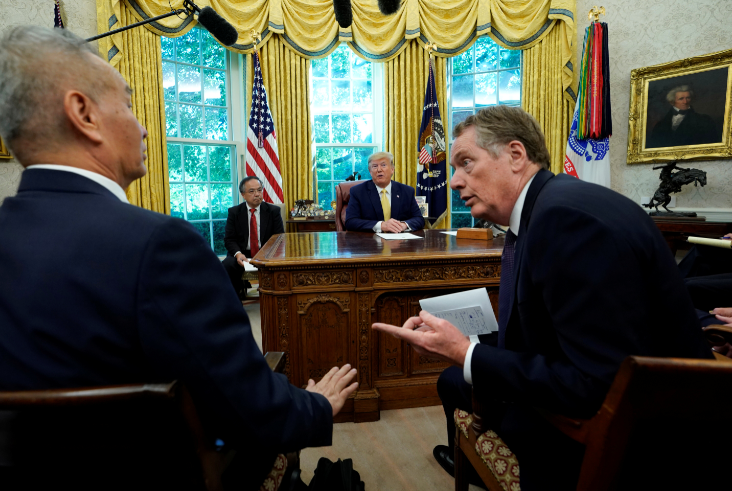A politically weakened President Donald Trump is being pressed by Beijing to rescind tariffs he imposed on September 1 and December 15 as preconditions for phase one of an interim trade deal that should mitigate the harshest effects of Trump's trade war against China.
Sources in Washington D.C. quoted by media outlets such as Politico and the Financial Times said China wants Trump to "remove all tariffs as soon as possible." They also revealed Chinese negotiators want Trump to roll-back the 15% tariffs on $125 billion worth of Chinese goods that took effect on Sept. 1 as part of phase one of any new trade deal. These tariffs covered some clothing items, flat-screen TVs, smart speakers, and Bluetooth headphones, among others.
A White House source said China considers the Dec. 15 tariffs on $156 billion worth of Chinese imports, including mobile phones, laptop computers, and toys also as part of phase one negotiations. The Chinese also want Trump to do away with his earlier 25% tariffs on $250 billion of imports.
Trump had earlier boasted he intends to sign this new trade deal within the month, and there is every indication Trump will balk at signing any deal given the new Chinese pre-conditions. The deal, which is scheduled to be signed by Trump and President Xi Jinping, is widely expected to see the U.S. scrap tariffs scheduled for Dec. 15.
"It's in both countries' interest to have this trade deal," said Ralph Winnie, director of the China program at the Eurasia Center. "If he seals the deal, it will be looked on very favorably by the American people. It's a win-win for both countries."
Analysts said the interim trade pact should help boost to both the U.S. and Chinese economies. The interim pact, however, does nothing to advance Trump's main goals of curbing China's massive subsidies to state-owned firms; forcing fundamental changes on China's political system; ending the forced transfer of American technology to Chinese firms and protecting American intellectual property rights.
Analysts say the phase one deal fails to address these key issues, meaning Trump will be the big loser in phase one.
An interim agreement will be short-term in nature and unstable, according to Charles Boustany, a former congressman from Louisiana and counselor at the National Bureau of Asian Research.
"Even though there's some talk about a phase one agreement, we don't think it's going to be substantive in terms of addressing any of the structural problems," said Boustany. "It would largely be a status quo situation where China continues to do what it's doing."
American business organizations complain that one key component of phase one, which is increased access to China's financial services market, means nothing because of inconsistencies in China's new foreign investment law.
China's draft regulations in this regard "do not address clear differences between the treatment of China's state-owned enterprises and the private sector," according to the U.S. Chamber of Commerce; the American Chamber of Commerce in China and the U.S. Information Technology Office.
The Ministry of Commerce earlier said China's goals as regards the China-U.S. trade deal have never changed.
"Both sides' ultimate goal for the negotiations is to end the trade war, cancel all additional tariffs. This is good for China, good for the U.S and good for the world," said Gao Feng, a ministry spokesman.





